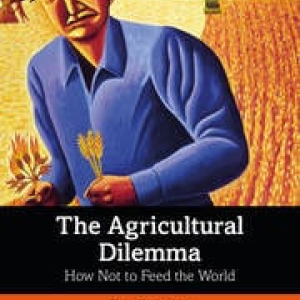
This book critiques three approaches to agriculture: Malthusian (expansion of agriculture), industrialisation (dependent on external inputs), and intensification (based on labour). It argues that the world can be fed with an alternative to industrial agriculture, which tends to be overlooked.
Publisher’s summary
The Agricultural Dilemma questions everything we think we know about the current state of agriculture and how to, or perhaps more importantly how not to, feed a world with a growing population.
This book is about the three fundamental forms of agriculture: Malthusian (expansion), industrialization (external-input-dependent), and intensification (labor-based). The best way to understand the three agricultures, and how we tend to get it wrong, is to consider what drives their growth. The book provides a thoughtful, critical analysis that upends entrenched misconceptions such as that we are running out of land for food production and that our only hope is the development of new agricultural technologies. The book contains engaging and enlightening vignettes and short histories, with case studies drawn from across the globe to bring to life this important debate and dilemma. The book concludes by arguing there is a viable alternative to industrial agriculture which will allow us to meet the world's needs and it ponders why such alternatives have been downplayed, obscured, or hidden from view.
This important book is essential reading for all studying and researching food production and agriculture, and more broadly for all interested in ensuring we are able to feed our growing population.
Reference
Stone, G. D. (2022). The Agricultural Dilemma: How Not to Feed the World. Routledge, Abingdon.
Read more here. See also the TABLE explainer What is agroecology?







Post a new comment »